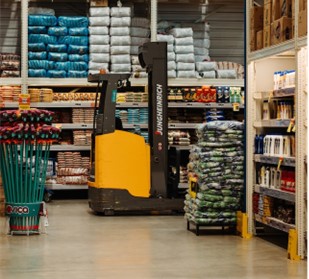Nicholas Ergle of Paulding County works as a logistics professional whose passion and commitment to environmental stewardship and efficiency have led to transformative changes within industry. In the following article, Nick Ergle provides forward-thinking perspectives as he navigates the evolving realm of sustainable logistics practices, uncovering the strategies, challenges, and remarkable advancements that are paving the way for a greener and more responsible future in the logistics sector.
When businesses learned that 75% of Millennials favor environmentally friendly goods and would alter their purchase behavior accordingly, they started going green to differentiate themselves and appeal to a younger market.
Now, however, green has permeated the industry, and businesses are adopting sustainable practices as part of their daily operations. Spearheading this movement is Green Logistics, a sustainable approach to supply chain management.
Below, Nick Ergle provides details on these sustainable practices and initiatives that are reshaping the industry.
By opting for environmentally-friendly and sustainable practices, the business aims to reduce energy consumption, minimize waste, lessen carbon emissions and conserve resources across its supply chain.
Nicholas Ergle of Paulding County says that not only are these practices a way to resonate with customers and make them happy, it's also a competitive advantage that makes shareholders happy below are a few examples:
Consider Walmart, in 2005 the superstore chain began its initiative to use renewable energy sources and reduce greenhouse gas emissions. By 2015, they doubled the efficiency of their fleet of trucks, reduced their CO2 emissions by 650,000 metric tons, and saved $1 billion in fuel costs.
Not bad.
As Walmart continues to augment its fleet of trucks with electric Tesla semis, more and more businesses will follow the lead and adopt autonomous and electric vehicles into their supply chains.
Nick Ergle explains that these self-driving vehicles can work for longer, need fewer breaks (or none at all), and continuously learn how to optimize routes for shorter, more efficient deliveries. Aside from that, the electric trucks don't need as much maintenance when compared to conventional ones, reducing emissions and lowering maintenance costs.
Businesses have also begun to use AI as part of their practices to reduce errors and minimize waste. Sensors powered by AI reduce the risk of misdirecting or losing shipments as they're transferred into the warehouse. Product listings are also automatically updated once the sensors see that product returns are ready for resale.
Through data analytics, AI can suggest a better warehouse layout, for example moving the more popular products closer to packing stations for a more efficient process.
Nick Ergle also notes that green logistics doesn't have to be fancy, either. It could be as simple as using energy-efficient LED lighting, or insulating warehouses to save on energy consumption.
 Green Logistics in Packaging
Green Logistics in PackagingConsidering how much emphasis the Millennial and Gen Z demographic places on environmentally friendly practices, businesses like Dell have switched to green packaging.
Some examples include:
Once upon a time, green was just a gimmick to sell the same product at a higher price point. Now, as environmental issues start having real-world effects on the daily lives of consumers, integrating environmentally-friendly and sustainable practices into a business' DNA is now a necessity.
Nick Ergle reports that as more businesses begin focusing on efficient transportation of goods, employing smart technology in warehouse management, and utilizing biodegradable or recyclable packaging, they not only minimize their impact on the environment, they also condition consumers to expect other businesses to operate in a similar manner.
As this trajectory persists, the path toward green logistics will no longer remain a mere choice but will inevitably evolve into the new industry norm, setting a powerful precedent for sustainable and responsible practices.